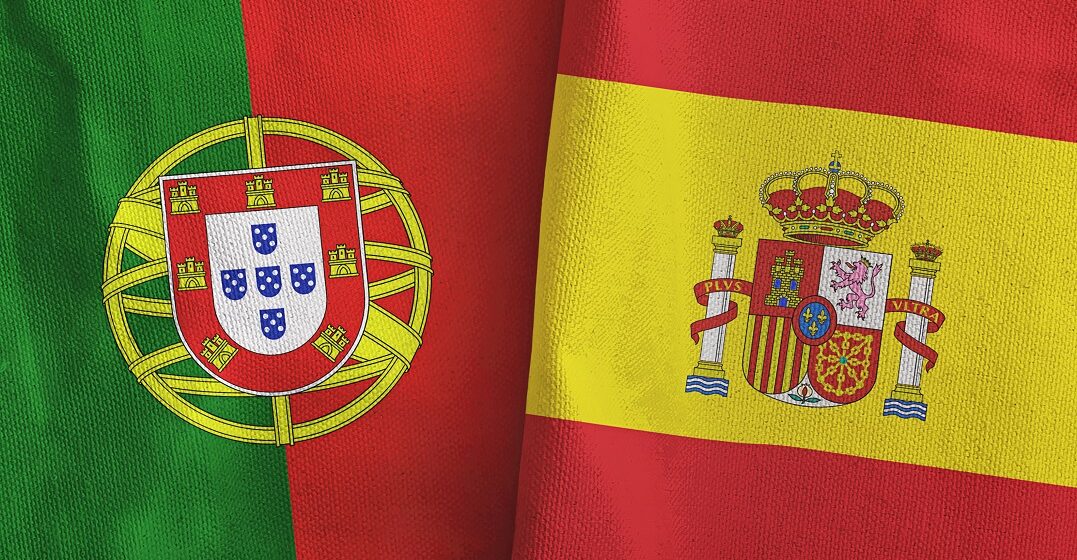Updated on August 7, 2023

Portuguese vs. Spanish: How similar are they?

If you’re weighing Portuguese vs. Spanish when deciding which language to learn next, you probably already know that they share some features in common. Many people who speak Spanish say they can at least understand Portuguese, and vice versa. But how similar are they really? Let’s dive into the differences and similarities between the two languages.
As languages that evolved from Latin, Spanish and Portuguese are both considered Romance languages. Due to their shared parent language, much of their vocabulary, syntax and conjugation sounds similar to both native speakers and language learners.
Both Spanish and Portuguese share the same alphabet, word order and usage of gender with nouns. They are also both spoken on the Iberian Peninsula, where present-day Spain and Portugal are located.
Both languages have also made their way around the world, though Spanish has proven more successful in that regard. There are about 500 million Spanish speakers in the world compared to about 260 million Portuguese speakers. This is related to the fact that Spanish is the official language of 20 countries, while Portuguese is the official language of only 10 countries.
Due to these differences, how hard is it for Spanish speakers to say Portuguese words correctly? Watch this YouTube video to hear examples of pronunciation success and failure.
Portuguese and Spanish share almost 90% of their vocabulary. However, while the majority of the words are quite similar and carry similar meanings, you’ll still come across a number of false cognates.
| Cognate | Spanish meaning | Portuguese meaning |
| pelado | shaved head or a new haircut | to be naked |
| largo | long (ancho means wide) | wide ( longo means long) |
| polvo | dust | octopus |
| exquisita (ES) and esquisita (PT) | delicious | weird (the “x” changes to “s”) |
| rojo (ES) vs roxo (PT) | red | purple (vermelho means red) |
Check out this TikTok video for more examples of false cognates between Portuguese and Spanish.
Let’s look at a few specific instances where Portuguese and Spanish grammar are similar.
The pronouns in Portuguese and Spanish are very similar.
| English pronoun | Portuguese pronoun | Spanish pronoun |
| I | eu | yo |
| you | tu / você (formal) | tú / usted (formal) |
| she/he | ela / ele | ella / él |
| we | nós | nosotros |
| you | vós (vocês) | vosotros |
| they | elas / eles | ellas / ellos |
Both Spanish and Portuguese have definite articles that must agree in number and gender with the nouns they modify. Portuguese uses the masculine singular article for the neuter.
| Article | Portuguese article | Spanish article |
| masculine singular | o | el |
| feminine singular | a | la |
| masculine plural | os | los |
| feminine plural | as | las |
| neuter | o | lo |
If you are thinking about learning Spanish or Portuguese, you now have a few factors to help you decide. Spanish has more native and non-native speakers than Portuguese, which you might want to keep in mind when making a decision. This can be an important factor when looking for classes or people to practice with.
(Note: Just like the Spanish spoken in Spain is different from the Spanish spoken in Latin America, the same is true for Portuguese in Portugal and Brazil.)
If you’re the indecisive type, the good news is that, if you speak one language, you may be able to understand some things from the other language. Thinking about learning Spanish or Portuguese? An intro class is a great way to help you decide which language to focus on.